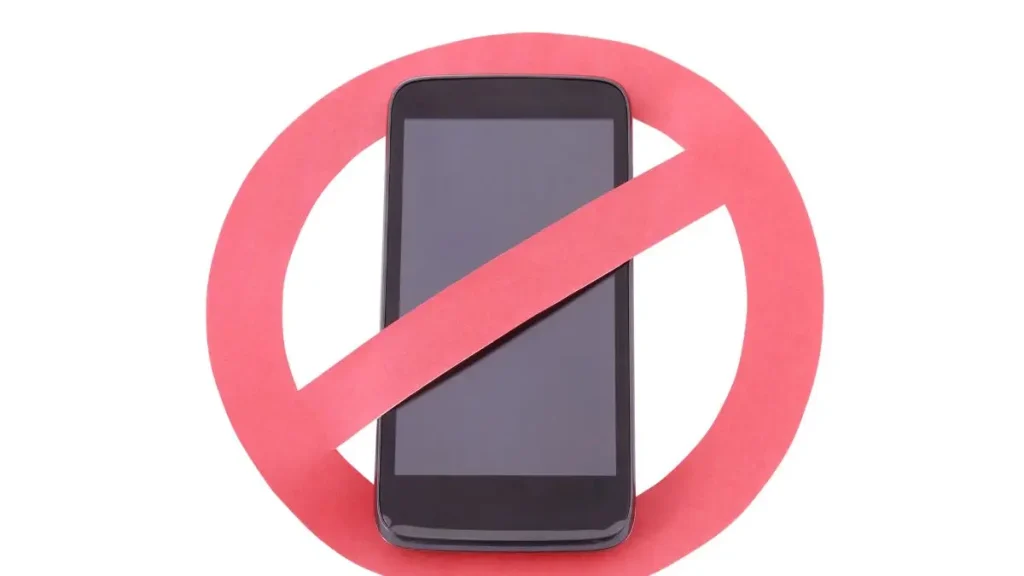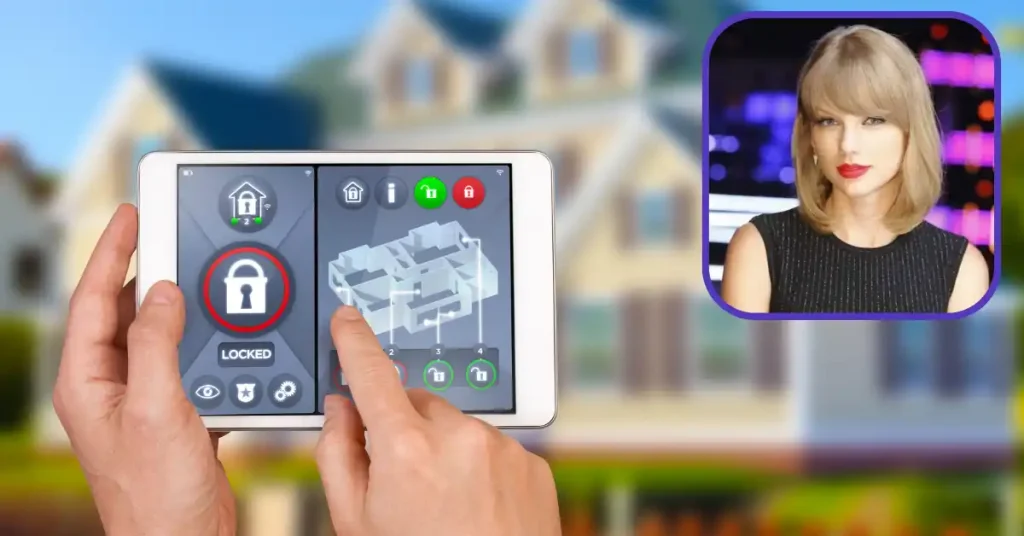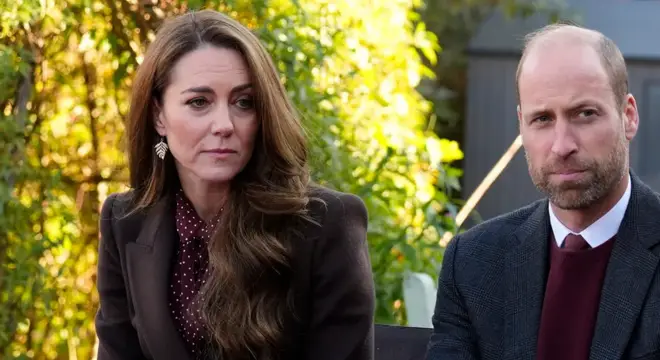Amal Clooney Bans Phones in Home to Protect Family Privacy
You know how hard it is these days to have a real, uninterrupted moment with someone—especially when phones are constantly buzzing? Now imagine being Amal Clooney, married to one of the world’s most recognizable faces, raising kids under a microscope, and still trying to carve out something that feels… normal.
In a world where everything gets documented, shared, and screens are always in the middle, Amal’s decision to ban phones inside her home isn’t just a rule—it’s a boundary. A clear one. And honestly, it’s refreshing.
She doesn’t do it to be controlling or dramatic. She does it because the pressure of public life doesn’t stop at her front door. It’s inside her house. And the only way she’s found to keep some real privacy—and protect her kids from the spotlight—is by taking phones completely out of the equation.
This first move might feel extreme to some. But when you hear why she’s doing it and how it works, it starts making sense. Maybe even feels a little necessary.
What do you think—would you ever ask guests to leave their phones at the door to protect your peace?
Why Amal Clooney Took This Step: “It’s About Creating Safe Spaces”
I get it—banning phones sounds intense. But if you’ve read Amal Clooney’s recent interview with Glamour you’ll understand exactly where she’s coming from.
She talks openly about how hard it is to protect private moments with the people she loves. And her solution? A phone basket.
Yep, whenever someone walks into her home, the phone goes in the basket. It’s not up for debate. Because for Amal, the home is the last sacred space left. She said it best:
Creating private moments and spaces is becoming increasingly difficult… That’s why we entertain a lot at home. I now have a phone basket that I use to take everyone’s phones away.
Think about that for a second. She’s not doing this to be fancy or distant. She’s doing it because she wants real connection—the kind you don’t get when someone’s glancing at a screen every five minutes.
If you’ve ever had a conversation ruined by a mid-scroll reply or someone checking Instagram during dinner, you know exactly why this matters.
Inside the Rule: How the “Phone Basket” Works at the Clooney Estate

Now, you might be wondering—how strict is this rule, really?
According to a piece by Fox News, Amal doesn’t leave any room for awkwardness. The rule applies to everyone. Friends, guests, maybe even the kids’ playdates—no phones past the entry.
There’s a basket. You walk in. You drop your phone in.
It’s not about policing people—it’s about setting expectations upfront. When someone enters their home, they’re not entering a space filled with distractions or cameras or background noise. They’re walking into a space meant for conversations, laughs, and uninterrupted time together.
And honestly, I respect that. You probably do too. Because in a world that’s always “on,” this kind of clarity is rare.
It also helps remove the pressure. No one has to worry about being recorded. No one’s thinking about capturing content. Everyone’s just… there. Present.
Amal’s Deeper Motivation: Privacy for Her Twins and Family Life
If you’re a parent, you’ll feel this part in your gut.
Amal’s not just making these rules for her own comfort. She’s doing it to protect her twins, Ella and Alexander. And this isn’t speculation—she’s said it outright in multiple interviews.
When you’ve got children and you’re living in the spotlight, every little boundary matters. Amal explained that since becoming a mom, she’s more disturbed by how easy it is for private moments to be taken, posted, and shared without consent.
“We don’t put our children out there,” she said. “We’ve never put their photo out there or anything like that.”
That’s a big deal. Especially when you consider how many celebrity kids grow up with their every move documented. Amal and George are actively choosing not to expose their children to that.
So yeah, a phone ban makes perfect sense. She’s not trying to be mysterious—she’s trying to protect a normal childhood.
You might not have paparazzi outside your window, but if you’ve ever worried about someone snapping a pic of your kid at a birthday party and uploading it without asking, you know this hits close to home.
Setting these boundaries may seem small, but they add up—especially when you consider how even well-known athletes have had their homes targeted during vulnerable moments.
A Look Inside the Clooney Family Estate in the English Countryside
Here’s the part that makes the phone ban even more interesting.
The Clooneys live in a sprawling, 17th-century estate in Sonning Eye, England—a property they reportedly bought for $14 million just days before their wedding. Realtor reported that this is where they also spent their honeymoon, even before any furniture was in the house.
That house isn’t just big—it’s personal.
They’ve filled it with sentimental pieces: a goofy painting of George’s late dog Einstein, art of a giraffe because Amal loves them, and tons of family photos. There’s a home theater, a pool house bar, and even a shared workspace where they both get things done. It’s private, cozy, and filled with joy.
So when Amal says this place is sacred, she means it. It’s not just real estate—it’s their sanctuary. And protecting that with a phone ban? It’s not just practical, it’s deeply personal.
You probably have a space like that too. Even if it’s just your living room, your kitchen table, or your kid’s bedtime routine—that space deserves to be respected, right?
Beyond the UK: The Clooney Real Estate Empire
Let’s be real—they could live anywhere. Lake Como, New York, the South of France—you name it. And they do own homes in all those places.
But despite all that, it’s the English countryside estate that Amal and George treat as home base. Not the flashiest, not the most famous—but the most protected.
That tells you something.
They’ve hosted world-famous friends at their Lake Como villa—Meghan Markle, Obama, Brad Pitt. They’ve invested in places that offer luxury and escape. But when it comes to raising their kids and unplugging from public life, they return to the place where no one gets to post or peek in.
It’s a strong message: You can have all the wealth in the world, but if you don’t control your boundaries, you’ll still feel exposed.
And maybe that’s the bigger takeaway—you don’t need millions to create a safe, sacred space. You just need rules that make people feel safe, seen, and truly present.
Privacy isn’t just about peace—it’s also about protection. Even stars like Brad Pitt have faced serious home invasions despite high-end security, reminding us that no one’s truly untouchable.
Celebrity Privacy Movement: Are Other Stars Following Amal’s Lead?
Amal’s phone rule might sound bold, but she’s not the only one drawing a line.
More and more celebrities are quietly ditching phones when it comes to personal time. Anne Hathaway has spoken about keeping phones off the dinner table. Jennifer Lawrence once admitted she prefers hosting friends who are fully there — no Instagram scrolling mid-conversation.
Even Lindsay Lohan has praised Dubai’s strict photo laws, saying it makes her feel safe in public. And it’s no surprise. For people constantly watched, a moment of privacy isn’t just luxury — it’s mental survival.
So, no — Amal’s not alone. She’s part of a growing shift: celebrities reclaiming private space in a hyper-public world.
And here’s the thing… it’s not about being rich or famous. It’s about reclaiming peace. Whether you’re a parent, an introvert, or just someone exhausted by group chats, the idea of turning off and tuning in? That’s universal.
In fact, some digital-first communities now discuss these boundaries in real-time updates—something I’ve noticed more often in quieter, private WhatsApp circles focused on mindful living.
Is the Phone Ban Extreme — or Just Ahead of Its Time?

Some people still call Amal’s approach over the top. But let’s zoom out for a second.
Screen-time burnout is real. According to reports, more than two-thirds of parents say they’re concerned about how much time their kids spend on devices. And many admit they struggle with their own screen habits, too.
So, is Amal really being extreme? Or is she just doing what the rest of us are slowly waking up to?
Creating no-phone zones isn’t some celebrity gimmick. It’s happening in regular homes, too. Families are banning phones at dinner. Parents are locking up devices after 8 p.m. Some are even doing full “tech-free weekends.”
That’s not extreme. That’s intentional.
And let’s be honest — it’s hard. You’ll get pushback. You’ll feel awkward explaining it. But when you stick to it, something changes. People open up. Conversations go deeper. The room feels lighter.
Maybe that’s what Amal saw, and maybe it’s something more of us need to try.
But as one Chicago music producer learned the hard way, having strong rules around privacy can make all the difference when the unexpected hits.
Want to Try a Phone-Free Zone at Home? Here’s How
Look, you don’t need a $14 million estate to pull this off. You just need a clear boundary — and the guts to stick to it.
Here’s how you can start:
- Pick one zone — dinner table, bedroom, living room. Keep it small.
- Be honest about the “why.” Tell friends and family you want to be present. It’s not about control, it’s about connection.
- Use a basket. Seriously. Follow Amal’s lead. Having a spot to drop phones makes it feel simple, not preachy.
- Make exceptions, but don’t fold. Emergencies are real. But scrolling through Instagram during a conversation? That can wait.
And yeah, it might feel awkward the first few times. People might roll their eyes. But give it a week, and notice the shift. You’ll be surprised how many people thank you for it.
Because deep down, we’re all a little tired of being half-there.
Final Thoughts
Amal Clooney’s phone ban isn’t about being elite. It’s about being aware.
She’s not trying to be trendy or dramatic. She’s trying to protect what matters most: time with her husband, her kids, and the people she trusts.
That doesn’t require a mansion. It requires courage. And clarity.
In a world that constantly demands your attention, setting a rule like this is a radical act of self-respect. Whether you’re a parent, a host, or just someone trying to stay sane — it’s okay to ask for boundaries. It’s okay to want more presence, less noise.
And maybe, just maybe, the next time you have people over… you’ll leave the phones at the door too.
If you’re interested in how other public figures protect their homes and privacy, our Celebrity Home Security section covers more real-world stories that matter.
Disclaimer: This article is based on publicly available interviews and news reports about Amal Clooney’s personal choices. It does not intend to speculate or intrude on the family’s private life. All opinions shared are for informational and discussion purposes only.


